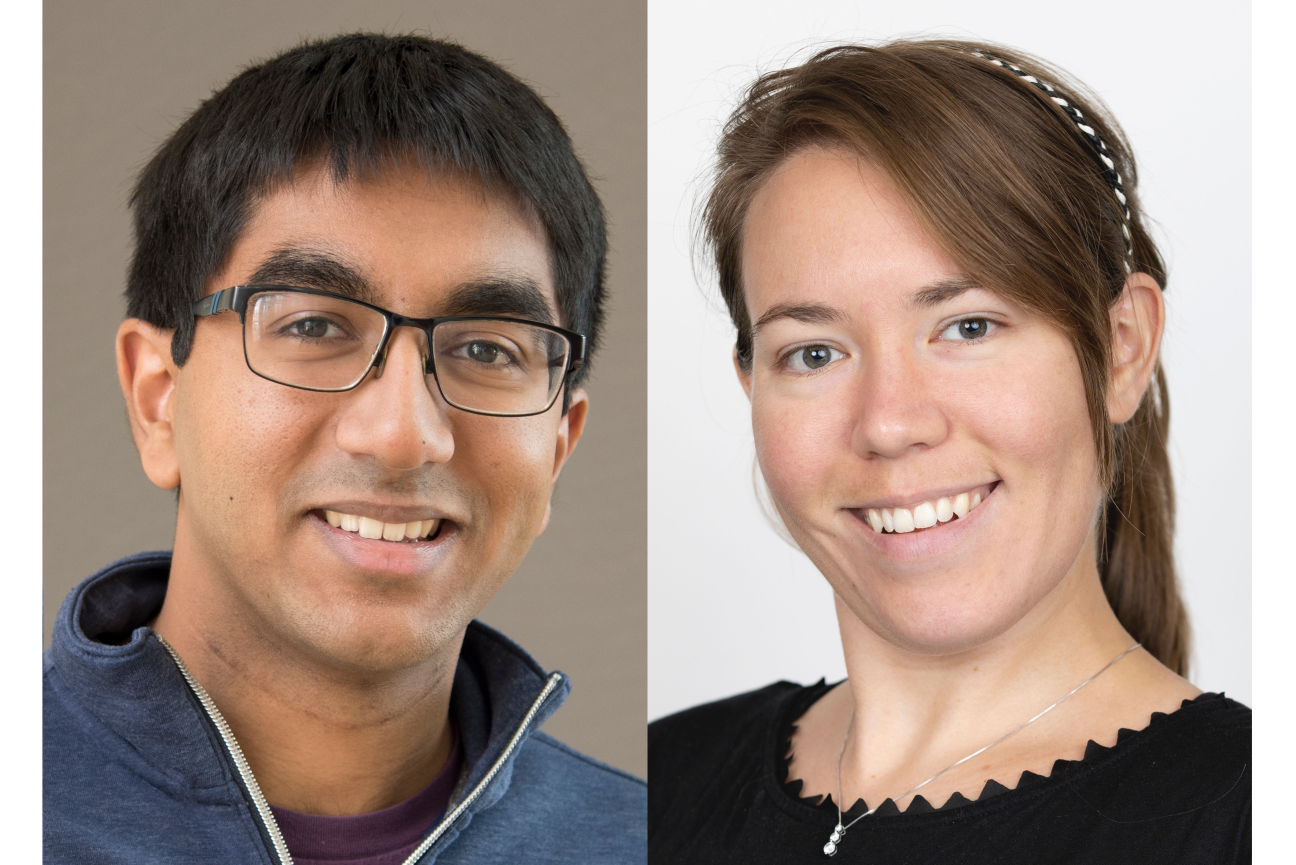
Left: Aditya Raguram. Right: Allison Hamilos
Courtesy of Aditya Raguram and Allison Hamilos
Whitehead Institute appoints two accomplished young researchers as Whitehead Fellows
Whitehead Institute has selected the newest members of the Whitehead Fellows Program, Allison Hamilos and Aditya Raguram.
The Whitehead Fellows Program provides highly talented and accomplished recent PhDs the opportunity to launch their own research programs, instead of working as postdoctoral researchers in a senior scientist’s lab. Since its founding in 1984, the Program has become the model for advancing the careers of biomedical research’s most promising young scientists. And its alumni have gone on to stellar research careers and major leadership roles in research, academia, and industry.
“Not only do these two scientists possess extraordinary skills and knowledge, they are original thinkers whose investigations will expand the breadth of research we conduct at the Institute,” says Whitehead Institute director Ruth Lehmann, who is also a professor of biology at Massachusetts Institute of Technology (MIT).
Hamilos, who will be a Valhalla Fellow within the Whitehead Fellows Program, earned bachelor’s degrees in chemistry and biology from MIT, a PhD from the Harvard Program in Neuroscience, and an MD from Harvard Medical School. Her doctoral research focused on dopamine neurons and related neural circuitry in mice; and her findings that dynamic dopaminergic activity controls the timing of movement initiation led her to propose a mechanism for the relationship of timing and motor deficits in Parkinson’s disease. At Whitehead Institute, Hamilos will continue to study dopamine neurons, to better understand how dopaminergic circuits may underpin spontaneous behavior and how they may contribute to neurological disease.
“My studies have enabled me to employ a range of research methods, including artificial intelligence, computational modeling, biomedical engineering, and X-ray crystallography,” Hamilos says. “I’m eager to join the Whitehead Institute, because its creative and collaborative culture offers a great opportunity for leveraging all those methods to better understand the underpinnings of neurological disease.”
Raguram holds a bachelor’s degree in chemistry and physics and a PhD in chemical biology, both from Harvard University. During his doctoral research with David R. Liu at the Broad Institute, Raguram developed several technologies for precision genome editing and protein delivery. Most recently, he co-invented a new method for efficiently delivering genome editing proteins into cells within a living organism using engineered virus-like particles. At Whitehead Institute, the Raguram lab will investigate mechanisms of intercellular biomolecule transfer to inform the development of new macromolecular delivery modalities.
“A deeper understanding of how diverse molecular cargos are transferred between cells might reveal ways in which we could use these pathways to deliver therapeutic molecules of our choosing,” Raguram explains. “I’m thrilled to join the Whitehead Institute community and look forward to leveraging the Institute’s extraordinary scientific platforms — as well as its faculty’s deep knowledge of cell biology — to both study and manipulate these fascinating molecular transport processes."
Hamilos and Raguram will begin their fellowships this coming September.
Topics
Contact
Communications and Public Affairs
Phone: 617-452-4630
Email: newsroom@wi.mit.edu